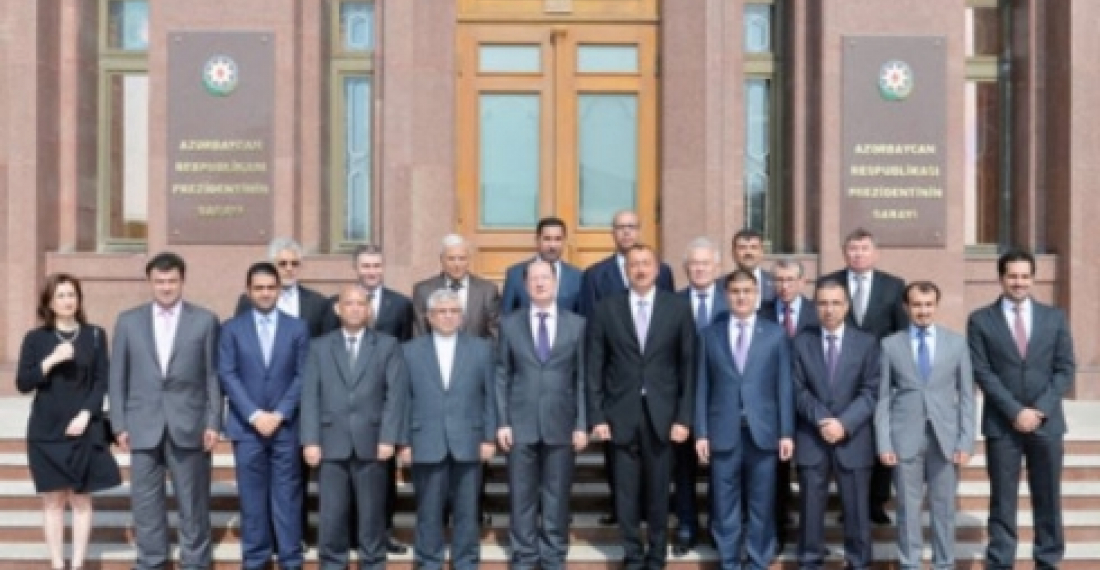Azerbaijani President Ilham Aliev on Saturday received the Ambassadors and envoys of Islamic countries accredited to Baku and exchanged greetings with them on the occasion of the Muslim Holy Month of Ramadan.
President Aliev told the diplomats, "Our countries have always supported each other in the framework of the United Nations. The efforts of Muslim countries were very important for the election of Azerbaijan two years ago, as a member of the UN Security Council. We are grateful for this support." Aliev added that Azerbaijan also constantly feels the support of Muslim countries for a resolution of the Nagorno-Karabakh conflict. "As you know, a growing number of countries recognize the Khojaly massacre as an act of genocide", the President said, reminding that Pakistan was the first country to do so.
Aliev spoke of Azerbaijan's work in the framework of the Organisation of Islamic Co-operation (OIC). He said "Over the past years, the Organization of Islamic Cooperation held five ministerial conferences in Azerbaijan. Recently in Baku we also hosted a donor conference to assist Palestine. We will continue our efforts in this direction in the future. Despite the fact that Azerbaijan is a recently independent country, it is very active in matters of Islamic solidarity. We will continue to strive to further strengthen the unity of the Islamic world. This is a great need because our strength is in our unity. We must always support each other in all questions " the president said. In conclusion Ilham Aliev told the diplomats, "Please convey my sincere greetings in the holy month of Ramadan Heads of State and Government of the countries that you represent".
The Ambassador of the Kingdom of Morocco to Azerbaijan on behlaf of the assembled envoys reciproacted the greetings for the month of Ramadan and the upcoming Eid to the Azerbaijani leader, family and people.
source: commonspace.eu with agencies
photo: President Ilham Aliev of Azerbaijan with envoys from Islamic countries accredited to Baku after exchanging Ramadan greetings on 20 July 2013. (picture courtesy of the Press Service of the President of Azerbaijan).







